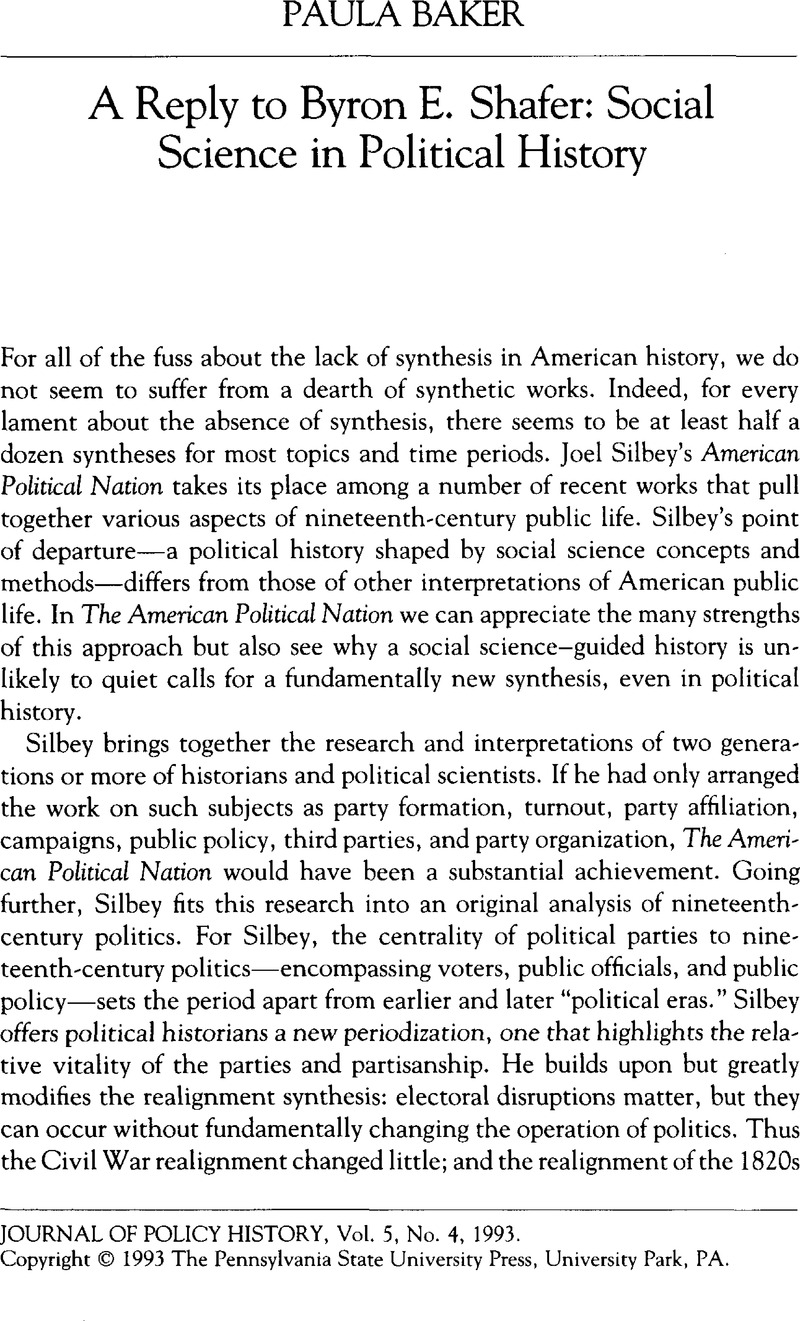Article contents
A Reply to Byron E. Shafer: Social Science in Political History
Published online by Cambridge University Press: 14 October 2011
Abstract

- Type
- Commentary
- Information
- Copyright
- Copyright © The Pennsylvania State University, University Park, PA. 1993
References
Notes
1. Ferguson, Thomas and Rogers, Joel, Right Turn: The Decline of the Democrats and the Future of American Politics (New York, 1986)Google Scholar; Balogh, Brian, Chain Reaction: Expert Debate and Public Participation in American Commercial Nuclear Power, 1945–1975 (New York, 1991).CrossRefGoogle Scholar
2. See, for recent examples, Skocpol, Theda, Protecting Soldiers and Mothers: The Political Origins of Social Policy in the United States (Cambridge, Mass., 1992)Google Scholar; Bensel, Richard Franklin, Yankee Leviathan: The Origins of Central State Authority in America, 1859–1877 (New York, 1990)Google Scholar; Skowronek, Stephen, Building a New American State: The Expansion of National Administrative Capacities, 1877–1920 (New York, 1982).CrossRefGoogle Scholar
3. McDonald, Terrance J., “The Problem of the Political in Recent American Urban History: Liberal Pluralism and the Rise of Functionalism,” Social History 10 (October 1985): 323–45CrossRefGoogle Scholar; Saxton, Alexander, The Rise and Fall of the White Republic: Class Politics and Mass Culture in Nineteenth-Century America (New York, 1990).Google Scholar
4. Examples include Bernstein, Iver, The New York City Draft Riots: Their Significance for American Society and Politics in the Age of the Civil War (New York, 1990)Google Scholar; Slaughter, Thomas P., Bloody Dawn: The Christiana Riot and Racial Violence in the Antebellum North (New York, 1991)Google Scholar; and Slaughter, , The Whiskey Rebellion: Frontier Epilogue to the American Revolution (New York, 1986).Google Scholar
- 2
- Cited by


